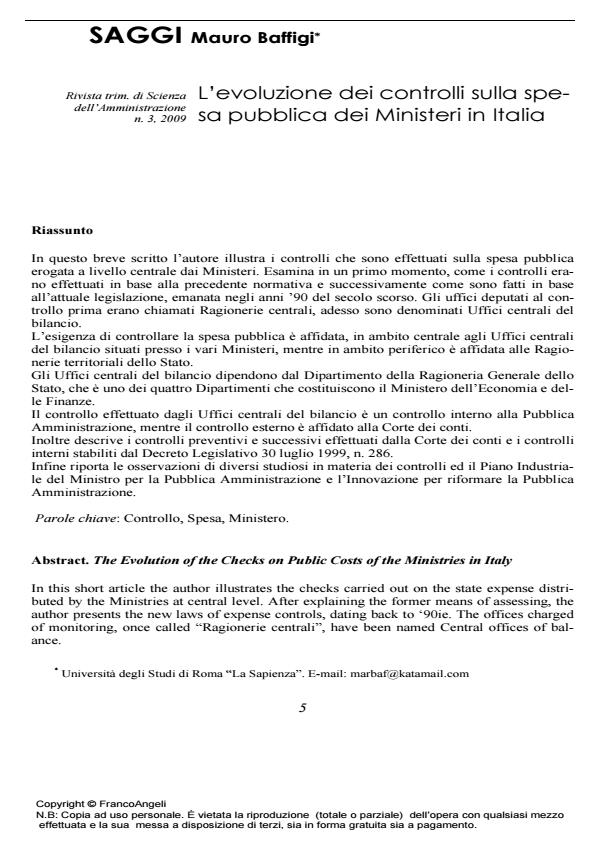L’evoluzione dei controlli sulla spesa pubblica dei Ministeri in Italia
Journal title RIVISTA TRIMESTRALE DI SCIENZA DELL’AMMINISTRAZIONE
Author/s Mauro Baffigi
Publishing Year 2009 Issue 2009/3
Language Italian Pages 23 P. 5-27 File size 621 KB
DOI 10.3280/SA2009-003001
DOI is like a bar code for intellectual property: to have more infomation
click here
Below, you can see the article first page
If you want to buy this article in PDF format, you can do it, following the instructions to buy download credits

FrancoAngeli is member of Publishers International Linking Association, Inc (PILA), a not-for-profit association which run the CrossRef service enabling links to and from online scholarly content.
The Evolution of the Checks on Public Costs of the Ministries in Italy - In this short article the author illustrates the checks carried out on the state expense distributed by the Ministries at central level. After explaining the former means of assessing, the author presents the new laws of expense controls, dating back to ‘90ie. The offices charged of monitoring, once called "Ragionerie centrali", have been named Central offices of balance. These offices, linked to the Ministries, control the state expense at central level; the "Ragionerie territoriali" of the State check it at local level. The Central offices of balance refer to the Department of the Central State "Ragioneria", which is one of the four Department the Ministry of Economics and Finance consist of. The Central offices make an inner public administration check, the "Corte dei conti" makes an external assessment. Moreover the article describes the checks of estimated and final balance carried out by "Corte dei conti" and illustrates the inner assessment due to "Decreto Legislativo" nr.286/99. Finally this essay remarks some experts’opinions about budget controlling and the Industrial Plan to reform the public administration by the Minister of Public Administration and Innovation.
Keywords: Check, Cost, Ministry.
Mauro Baffigi, L’evoluzione dei controlli sulla spesa pubblica dei Ministeri in Italia in "RIVISTA TRIMESTRALE DI SCIENZA DELL’AMMINISTRAZIONE" 3/2009, pp 5-27, DOI: 10.3280/SA2009-003001